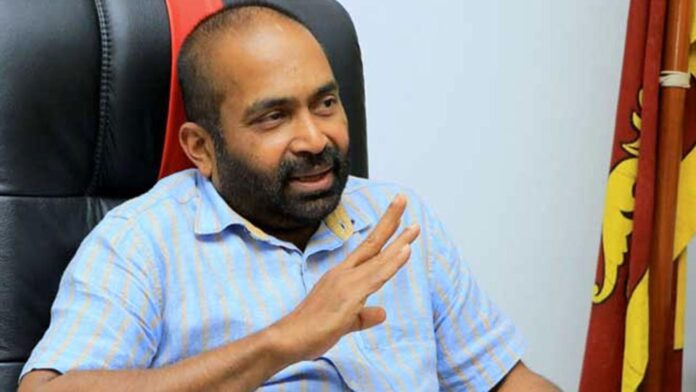By: Staff Writer
Colombo (LNW): The Sri Lankan government, in its bid to stimulate the country’s economy, has announced plans to ease import restrictions on an additional 300 items, State Minister of Finance Ranjith Siyambalapitiya disclosed.
The move, set to take effect next week, is expected to further invigorate the nation’s domestic markets and foster economic recovery.
This policy shift comes on the heels of a similar decision made a month ago, when the government relaxed import controls on 300 different items.
The previously relaxed list included a wide variety of goods, such as electronic equipment, sanitaryware, and various food items, which took effect on June 9.
The relaxation of import restrictions is part of a broader government strategy aimed at easing supply chain constraints, improving the availability of goods, and stabilizing market prices.
Sri Lanka is looking at demand, domestic substitutes, and its foreign exchange position in relaxing the country’s import restrictions which have been in place since March 2020, as the country phases out control measures under the Extended Fund Facility (EFF) of the International Monetary Fund (IMF).
He said that in the approach, the criteria the Finance Ministry had considered were items that had no domestic substitute, items that were essentials for agriculture, fisheries, tourism, and other industries.
Despite these progressive measures, Siyambalapitiya clarified that import restrictions on vehicles are likely to remain in place for the foreseeable future.
He cited the country’s current economic conditions as the primary reason for this ongoing restriction. This announcement may come as a disappointment to many potential vehicle buyers and importers who were hoping for a relaxation of vehicle import restrictions.
The government’s decision to maintain vehicle import restrictions has stirred concerns within Sri Lanka Customs.
Officials recently communicated their apprehensions to the Sectoral Oversight Committee (SOC) on National Economic & Physical Plans.
The main point of contention lies in achieving the set target revenue. With the ongoing vehicle import restrictions, meeting these targets becomes significantly more challenging.
The Government has already relaxed 638 HS codes including those of commercial vehicles since June 2023, but imports declined from May to June from $ 1.46 billion to $ 1.38 billion with a slight reduction in export numbers from $ 1.01 billion to $ 1 billion.
The government’s dual approach reflects its delicate balancing act: on one hand, it seeks to boost economic activity by loosening import restrictions, and on the other hand, it remains cautious about overextending the country’s economic capacity by keeping restrictions on potentially high-cost imports like vehicles.
As Sri Lanka navigates its way through these economic challenges, the focus remains on managing the financial health of the nation while also ensuring that consumer needs are adequately met. How these dual objectives are balanced will undoubtedly be the subject of ongoing scrutiny and debate.

